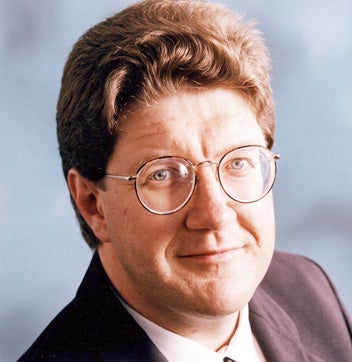Your support helps us to tell the story
From reproductive rights to climate change to Big Tech, The Independent is on the ground when the story is developing. Whether it's investigating the financials of Elon Musk's pro-Trump PAC or producing our latest documentary, 'The A Word', which shines a light on the American women fighting for reproductive rights, we know how important it is to parse out the facts from the messaging.
At such a critical moment in US history, we need reporters on the ground. Your donation allows us to keep sending journalists to speak to both sides of the story.
The Independent is trusted by Americans across the entire political spectrum. And unlike many other quality news outlets, we choose not to lock Americans out of our reporting and analysis with paywalls. We believe quality journalism should be available to everyone, paid for by those who can afford it.
Your support makes all the difference.The former second-in-command at the BBC got a redundancy payment of around £950,000 when he left the corporation last month, according to reports.
Mark Byford, who was made redundant when his deputy director general role was eliminated as part of a cost-cutting exercise, joined the corporation in 1979 as a television researcher at BBC Leeds.
The Daily Telegraph reported that Mr Byford will also be eligible for pension payments by 2013 on top of the £950,000.
Details of his redundancy package will be included in the BBC's accounts, which are due to be published next month.
Mr Byford, from Castleford, West Yorkshire, became deputy director general in January 2004 but within three weeks of his appointment, Greg Dyke resigned as head of the BBC.
He took on the position of acting director general for five months until Mark Thompson was appointed to the role.
The Daily Telegraph also reported that Sharon Baylay, who was the BBC's marketing boss, was given a redundancy package of around £390,000.
A BBC spokeswoman said: "Figures will be included in the BBC's annual report and accounts to be published in July, and we will not be drawn in advance of that. We have made significant progress on reducing both our senior manager headcount and pay bill, and we are on target to reach our proposed reductions."
Two months ago, Mr Thompson told the House of Lords Communications Committee that the BBC was finding it "extremely hard" to fill senior roles because of the amount it pays people.
Mr Thompson, who cut his own salary and those of other senior executives to curb anger over high pay, said: "It's extremely hard now to fill senior jobs in the BBC and, increasingly, remuneration is a factor."
The BBC has also frozen bonus payments to senior staff.
Among the senior figures who have left since last year are IT guru Erik Huggers, Jana Bennett who joined the BBC's commercial arm, and BBC1 controller Jay Hunt who joined Channel 4.

Join our commenting forum
Join thought-provoking conversations, follow other Independent readers and see their replies
Comments